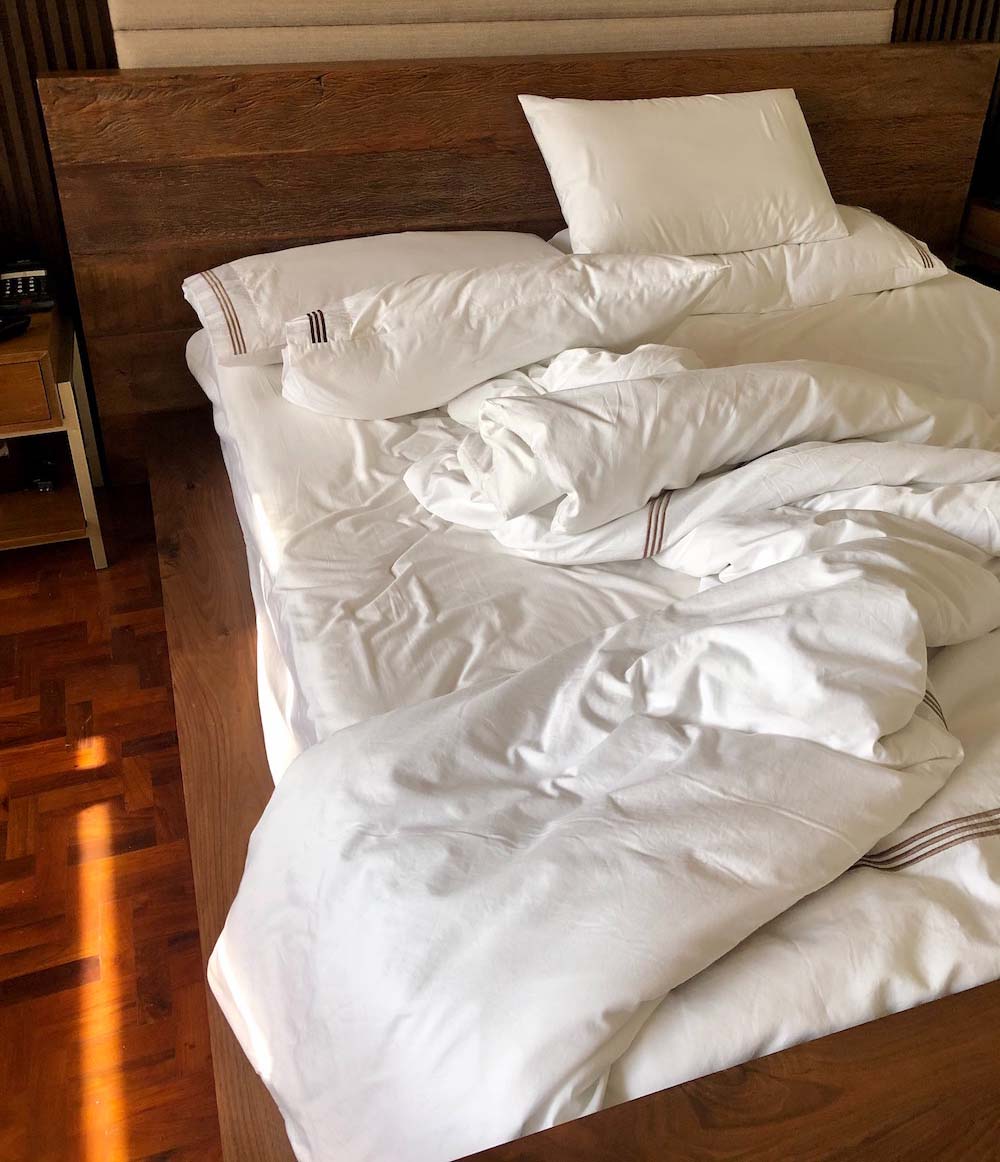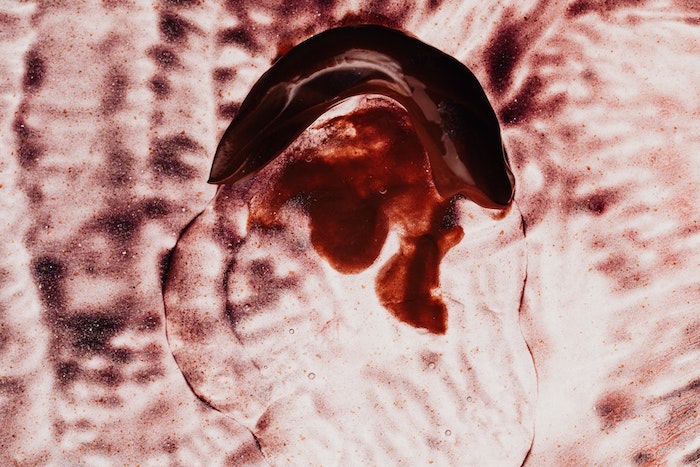A topic that seems to be briefly discussed in text groups between friends, but doesn’t seem to get its well-deserved day in the sun is hormonal anxiety. You may be wondering what hormonal anxiety is exactly, if you suffer from it, and how to beat it.
Before we get into it, let’s just quickly make sure we understand what anxiety is and how it can take shape.
So, what does anxiety feel like? Anxiety symptoms
You have most likely experienced anxiety at least once in your life, as I’m sure you know, it isn’t a pleasant feeling. It can appear with physical effects, mental, or both. Mind, (a UK based mental health charity), outlines the main physical symptoms as:
- pins and needles
- feeling light-headed or dizzy
- increased breathing/ heart rate
- nausea
- headaches
- feeling restless
- panic or anxiety attacks
- problems with sleep
Similarly, mental symptoms can include:
- feeling tense, nervous
- a sense of dread
- intense fear
- excessive worry about what others may think/ say about you, what may happen in the future
- worrying about the anxiety itself (i.e. fearing a panic attack from happening again after having experienced it the first time)
- thinking about something again and again (also known as rumination)
- feeling disconnected from your mind and body, or from the world around you (depersonalisation and derealisation)
- seeking lots of reassurance from friends, family, and others
While this list is not exhaustive and anxiety can affect each person differently depending on their life stage, it provides a good stepping-stone for clarification for when we use the term ‘anxiety’ in this article. Whether you experience anxiety with these symptoms or not, know that you are not alone. Know that I too, dear reader, experience both hormonal and non-hormonal anxiety. I’m right there with you, cheering us both on.
Hormones and Anxiety: Understanding the Relationship
Actually, a lot! Anxiety might not necessarily be caused by hormonal imbalances but works in a cyclical relationship. Hormones can affect your anxiety levels and anxiety levels can affect your hormones. Seems like a lose-lose situation, I know, but thankfully there are things we can do to ease its effect.
What happens when we feel anxious?
Let me explain a little more – the first instance of an anxious feeling could be triggered by anything from conversations, thoughts, situations or any other uncomfortable sensations. Signals get sent off in our brain that tell us we’re no longer safe either physically or emotionally.
The part of the brain that is responsible for the fight or flight response is the amygdala. (Fun fact: the amygdala is also sometimes referred to as our ‘reptilian brain’, since, in terms of our evolution as species, it is one of the oldest parts of the brain.) So, going back, these signals that get sent off increase the levels of certain hormones, resulting in more anxious thoughts, uncomfortable physical sensations, and an increase in anxiety.
Hormonal anxiety in particular, which is what we’re going to be focusing on here, is anxiety induced by hormonal imbalances. The process is the same; signals are sent within the brain that make us feel like we’re in danger and results in that unpleasant anxious feeling.
Hormones responsible for hormonal anxiety
There are a few different hormones that can affect hormonal anxiety so it’s important to look at each of them in a little more depth.
Cortisol and Adrenaline
Cortisol and Adrenaline can be titled as the stress hormones. They are responsible for that dread-like feeling, increased heart rate and nervousness. Originally ‘designed’ to help us by letting us know when danger was near, today’s dangers have shifted from being chased by large animals, to crossing the street in traffic, and getting that work report in on time.
The trouble is, if there is a long-term exposure to stressful situations, the ‘baseline’ anxiety is likely to increase. This means that you are more likely to feel more anxious more often.
Progesterone and Oestrogen
During menstruation, we release two specific hormones: progesterone and oestrogen. Oestrogen helps the release of serotonin acting like an antidepressant (the happy hormone!) and tends to be higher during the beginning of the cycle. Progesterone on the other hand, taking charge after the ovulation period, can sometimes bring you down, making you feel sad or anxious.
Remember when we talked about the amygdala? Well the amygdala reacts to the progesterone, and results in those sad and anxious feelings; hence hormonal anxiety.
Testosterone
You may know testosterone as the ‘male’ hormone, but we all have it, just varying amounts (that is not necessarily gender-based). Testosterone in women is responsible for maintaining the health of the bones, breasts, vagina, menstruation and fertility, as well as our sex drives. So, you can see that it’s a pretty important hormone! That being said, there are some studies that have found a connection between low levels of testosterone with an increase in anxiety. Among other things, it can even cause irregular periods, or even a missed one altogether.
So, now that we have an understanding of what happens on a physiological level, lets move on to the next step.
What can we do to beat hormonal anxiety?
First things first, recognise it! When does it peak for you? How does it manifest and how intense does it get? Are there things in your life that you could change or pause?
Answering these questions are important because no two bodies are the same, and what works for one person may not necessarily work for you. That’s why trying different things until you find something that does work is key.
Self-care: Physical, Emotional and Intellectual
Get comfortable
Get yourself nice and cosy so that you can remind yourself that you are at least physically safe, even if it seems like your body and your mind disagree with you. Take a nice hot shower, put on your favourite comfortable outfit, snuggle up under a blanket, or try putting on some soothing music. I often underestimate the power of these, especially when I’m feeling anxious, but I can vouch for their effectiveness.
Make sure to hydrate
Are you getting enough H2O throughout the day? It is recommended to drink about 11.5 cups of water, which roughly translates to 2.7 litres a day. Limiting alcohol and caffeine consumption can also be beneficial since they both have a dehydrating effect on the body.
(Also, caffeine is a stimulant, which can increase headaches, feelings of shakiness and anxiety. Alcohol is a depressant, which may make you feel calmer short term, but long term has detrimental effects on our health and outcomes in healing from anxiety)
Talk about it!
Reach out to someone you trust and feel comfortable with, and talk it out. They may be able to provide insight into what is going on that you may not have thought of. Or, if nothing else, give you an opportunity to vent which can be very emotionally cleansing.
Get creative
On a similar note, if you prefer to write things down in a journal, then that can be just as effective. There is something very powerful that happens when after you’re done writing, you look at the page and the right words seem to jump out at you. If writing isn’t your thing, try painting, drawing, reading, pottery, making music, anything that gets your creative juices flowing and brings you joy! (Bonus points if you can be actively engaged!)
Pleasure time
Yes, pleasure. Orgasms help, really. We release endorphins and oxytocin and dopamine (both pleasure hormones) that make us feel good. The pleasurable feeling during an orgasm can decrease feelings of pain and discomfort, leaving you feeling satisfied and relaxed.
Physical exercise
The endorphins are at it again; physical exercise can have a similar effect that orgasms have, leaving you feeling satisfied. In both cases, there is an added benefit in that they can (sometimes) help you feel more productive.
Practice Grounding
If anxiety levels are getting a little too much to handle, it may be useful to take a break and remove all stimuli around you. Turn off the TV, hang up the phone, put your laptop away, dim the lights. Sit down somewhere, straighten out your back, but make sure it’s still comfortable. Take a few deep breaths (inhale through the nose and count to 5, exhale loudly through the mouth and count to 5). Do this until you feel your heart rate decrease and you feel a calming effect. Then begin the process of grounding yourself. What can you see? Touch? Smell? If you feel anxiety spiking up again, take a few more deep breaths and repeat the process.
Let’s summarise
At the end of the day, when we are feeling uncomfortable what we want is to feel comfortable, when unhappy then happy and so on. So, when we experience discomfort in the form of anxiety, we must first understand why we are feeling anxious before we can move on to solving it. It is important to face what it is we are feeling so that we can process it and let it go. The techniques suggested in this article are coping techniques that take care of you and your well-being. If none of these do the trick for you, feel free to try something else! So long as it doesn’t bring any kind of harm to you or others, and it makes you happy then you do you, girl!
Important note: if you find that you tend to have feelings of anxiety often and strong enough to impact your day-to-day life, relationships with others and responsibilities, it may be worth reaching out to a mental health professional or your GP. They are specially trained in dealing with mental health-related issues and can help you understand what you’re feeling, get to the root of it and help you find a personalized solution!





